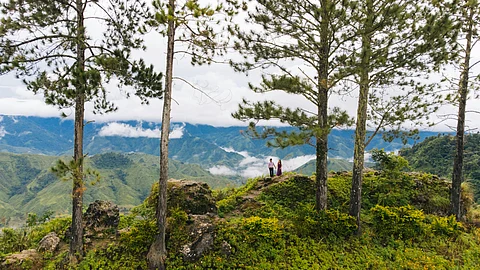
- NEWS
- the EDIT
- COMMENTARY
- BUSINESS
- LIFE
- SHOW
- ACTION
- GLOBAL GOALS
- SNAPS
- DYARYO TIRADA
- MORE

Regine Velasquez once shared that, as a child, she used to play in the canal to catch fish. To people’s disbelief, she shockingly asked, “Bakit, wala na bang isda sa kanal ngayon? (Aren’t there fish in the canal anymore?)”
It makes you wonder how carefree life once was — playing in nature without fear of harm. Now, people have grown so distant that nature is seen as something for vacations, not for everyday mornings.
The Guardian reported on a study by Miles Richardson, professor of nature connectedness at the University of Derby, which found that human connection with nature has declined by 60% since 1800. He measured this loss over 220 years using data on urbanization, wildlife decline, and even changes in parenting, where fewer children are encouraged to bond with nature.
This sad reality is even reflected in literature. Between 1800 and 2020, words like river, moss, and blossom have steadily faded from books. Professor Richardson attributes this to an “extinction of experience” among people.
“Nature connectedness is now accepted as a key root cause of the environmental crisis,” Richardson said.
“It’s vitally important for our own mental health as well. It unites people with nature’s wellbeing. There’s a need for transformational change if we’re going to fix society’s relationship with nature,” he added.
From being an anito-worshipping nation, many Filipinos now rarely experience playing in streams (sapa), chasing dragonflies, or seeing them on quiet evenings. Such scenes are now mostly found in old books or remote areas.
And sadly, the answer to Regine’s question is "yes." There are little to no fish in the canals anymore — only garbage.
According to the Climate Change Commission, only 24 percent of the Philippines’ total land area is covered by forests. That is about 7.2 million hectares, compared to 17.8 million hectares in 1934.
Living in Metro Manila makes encountering nature feel almost impossible unless you make an effort to visit parks. Even enjoying morning coffee under a backyard tree is now considered a small luxury.
Even provinces near the capital are at high risk. Take Rizal, for example, where hidden natural wonders, including the breathtaking Sierra Madre mountain range, are being overshadowed by quarrying. The noise from the sites drowns out the murmur of streams and the song of crickets, while dust clouds replace the glow of fireflies.
The destruction of nature, which worsens disasters like flooding and landslides, is a painful sign that our disconnection from the natural world is growing deeper than ever.
